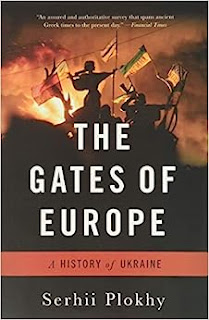from The Gates of Europe: A History of Ukraine by Serhii Plokhy:
The prohibition of virtually all Ukrainian publications in the Russian Empire came in the summer of 1863, in the middle of the Polish uprising that had begun in January of that year. At stake once again was the loyalty of the Ukrainian peasantry. The government decided that when it came to the Ukrainian language, its main concern was the consolidation of the imperial Russian nation, which required shielding the peasantry from unwanted advances on the part of the Ukrainophiles. “Previous works in the Little Russian language were aimed only at the educated classes of southern Russia, but now the proponents of Little Russian ethnicity have turned their attention to the uneducated masses, and those who seek to realize their political ambitions have taken, under the pretense of spreading literacy and education, to publishing reading primers, alphabet books, grammar and geography textbooks, etc.,” wrote the minister of interior, Petr Valuev, in the directive prohibiting Ukrainian-language publications, now not only in the Latin but also in the Cyrillic alphabet. The Valuev directive did not extend to works of fiction, of which there were very few in the early 1860s. In the five years between 1863 and 1868, when Valuev resigned his office, the number of Ukrainian-language publications fell from thirty-three to one.
At first considered a temporary measure, the prohibition became permanent in May 1876. That month, Emperor Alexander II issued a decree known as the Ems Ukase (he was relaxing at a spa in the German town of Ems). The new decree went further than the Valuev directive, prohibiting all publications in Ukrainian, as well as the import of Ukrainian-language books from abroad. It also banned Ukrainian-language theater productions and public performances of Ukrainian songs. Like the Valuev directive, the Ems Ukase was kept secret from the general public. The restrictions were loosened in the 1880s, with the removal of plays and songs from the list, but the publication or import of any Ukrainian-language text remained prohibited for another quarter century. The government held to the formula ascribed to Petr Valuev, who claimed that “there was not, is not, and cannot be any special Little Russian language.” The Ukrainian language, culture, and identity came to be seen as a threat no less serious to the unity of the empire than Polish nationalism: the very unity of the Russian nation seemed to be at stake.

No comments:
Post a Comment